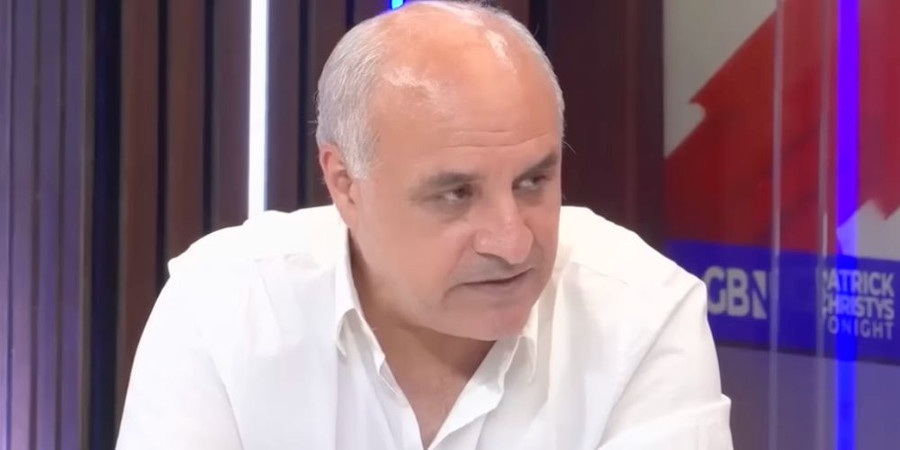The President's name was George Bush. He had just won a stunning victory in the Middle East, and his approval rating was soaring-although some worried about his handling of the economy.
It is irresistible to compare the political prospects President George H.W. Bush faced 12 years ago with those his son faces today.
But don't dwell on similarities. The differences are the real story.
The first difference: Bush I polled better than his son does today. A March 1991 USA Today poll fixed Bush I's approval rating at 91%. Seventy-two percent said they would re-elect him. By contrast, an April 13 Wall Street Journal/NBC News poll fixed Bush II's approval rating at 71%. and 52% said they would re-elect him. Not bad-but still 20 points behind his dad.
Yet, as Bush I learned, history's pages are crammed with wartime leaders, including Winston Churchill, whose popularity collapsed when the shooting stopped.
The good news for Bush II: Other differences between his father's situation and his own underscore his superior positioning.
Bush II has a solid Republican Party behind him. Bush I did not. Seven months before the Gulf War, he had dropped a bunker-buster on his own political base. In 1988, candidate Bush won the devotion of conservatives by declaring, "Read my lips: No new taxes." In June 1990, he betrayed that pledge by offering to negotiate "tax revenue increases" with Democratic leaders.
A month later, he nominated the liberal David Souter to the Supreme Court.
In swift, successive hammer blows, Bush II smashed up the Holy Grails of both economic and social conservatives. They never trusted him again.
Bush II's relationship with the Republican base reverses his father's. He has grown in their affection-even though he has never been perfect on conservative issues, or (more to the point) pretended to be.
Bush II was elected promising to boost federal involvement in education, which conservatives consider ineffective and unconstitutional. He signed the 1st Amendment-busting McCain-Feingold Campaign Finance Reform Act. He has flirted with granting an amnesty to illegal aliens. But all the while he has shown fidelity to conservatives on the biggest domestic issues: He enacted a supply-side tax cut, he has called for another, and he has made excellent nominations to the appellate courts.
He heads toward an election year fighting the Democrats for tax cuts and conservative judges. Unless he pulls an unlikely about-face-i.e., suddenly cutting a deal to raise taxes, or nominating another David Souter-the entire Republican base will march jubilantly behind him all the way to the polls.
Because of that, Bush II can focus on winning swing voters and swing states. And here, too, he is far better positioned than his father.
In recent decades, the Republicans' three great issues have been taxes, social conservatism and national security. The latter two have the greatest appeal to swing voters. They gave Nixon a landslide over McGovern and Reagan a landslide over Mondale. They may not give Bush a landslide of equal magnitude in 2004 because massive coastal states such as California and New York have moved significantly leftward in the past 20 years, and are now perhaps beyond Republican reach. But they could give him a lock on northern Midwest states he lost (sometimes narrowly) in 2000. These include Iowa, Wisconsin and Michigan.
Coupled with a solid South, these states are key to what I call the Emerging Heartland Majority.
Here Clinton had four advantages over Bush I that no Democrat is likely to have over Bush II. First, with the Cold War and Gulf War won, national security faded as an issue. It won't fade now.
Second, Clinton rose from obscurity claiming to be a more socially conservative Democrat: he used the death penalty, wanted to "end welfare as we know it" and said abortion should be "rare" if legal. All current Democratic candidates are known social liberals.
Third, Clinton blamed Bush I for a bad economy-even though the economy grew throughout 1992, and was growing at a 5.4% pace on Election Day. Democrats then had virtually the entire national broadcast media-except Rush Limbaugh -backing up their economic mythology. Now, Limbaugh is flanked by conservative voices all over national radio and TV.
Finally, Ross Perot mounted a potent third party campaign in 1992, siphoning off voters who saw through Clinton but preferred not to vote for Bush. If there is a serious third party candidate this time, he will be an antiwar leftist siphoning support from a soft pro-war Democrat.
Is Bush unbeatable? Put it this way: The smartest Democrat aspirant today is the one not running-Hillary Clinton.





